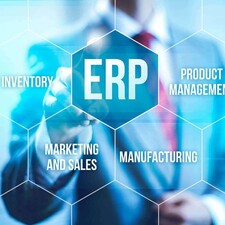Blog
ERP Data Management Drives Good Business Decisions

Summary
What's Your Problem? - Part 1
ERP data management can empower workers to be at their best at all times. The key is to find a solution that can feed users the information they need to make good decisions.
Applying analytics data to decision making is becoming essential in modern business. When managers, supervisors and executives make decisions, they need the right data at the right time. Without supporting information, organizations end up, in essence, gambling with the outcome of the choices they make. For example, vendor choices can add a great deal of value when companies have an understanding of how those suppliers work, but they can lead to significant complications and losses if the relationship goes south. Having the right data when it comes time to make a choice is invaluable.
Transforming how organizations gather and use data
We already mentioned vendor management as an area where giving users timely data can be important, and the benefits become clearer with an even deeper look. To begin, let's look at vendor management for purchase requests in a traditional environment:
-
Users send vendors an email to ask them to bid on a purchase request
- Vendors compile details on price, goods available and similar issues
- Vendors project when items will be delivered
- Users need to manually follow up with vendors in the event that anything goes off schedule
abas ERP lets organizations create custom, role-based dashboards that integrate with a variety of info systems, portals and BI solutions
With an ERP data management system like abas, this process looks very different:
- Users set up a purchase order in the vendor portal
- Relevant vendors are sent a notification
- Vendors can automatically update their bids within the ERP
- Updates on shipping are made in the ERP, providing end-to-end visibility into the order
With this simple data transmission between purchase managers and vendors, everyone has the data needed to make timely decisions. Because all of the data exists within the ERP, it can then be captured into reports. A purchase manager, for example, can quickly view key performance metrics from vendors before making any decision, eliminating any worry about performance relative to a specific order.
ERP data management brings data into dashboards
As we just highlighted, delivering data to dashboards can position users to view key information quickly and help them make choices. The problem is that many systems limit what users can access on their dashboards. abas ERP data management lets organizations create custom, role-based dashboards that integrate with a variety of info systems, portals and business intelligence solutions. As such, users are always getting the information they need in the most convenient way, making it much easier to make good decisions at any point in time.
Data can mean the difference between understanding the risk of any choice and having to take your best guess. In today's highly complex enterprise environments, users can't afford to take on that kind of uncertainty. abas ERP empowers organizations to organize and deliver data to users in a timely manner without introducing complexity or overwhelming employees with excessive information. Learn more by downloading our guide to Selecting an ERP System in 7 Easy Steps, or contact us today.


